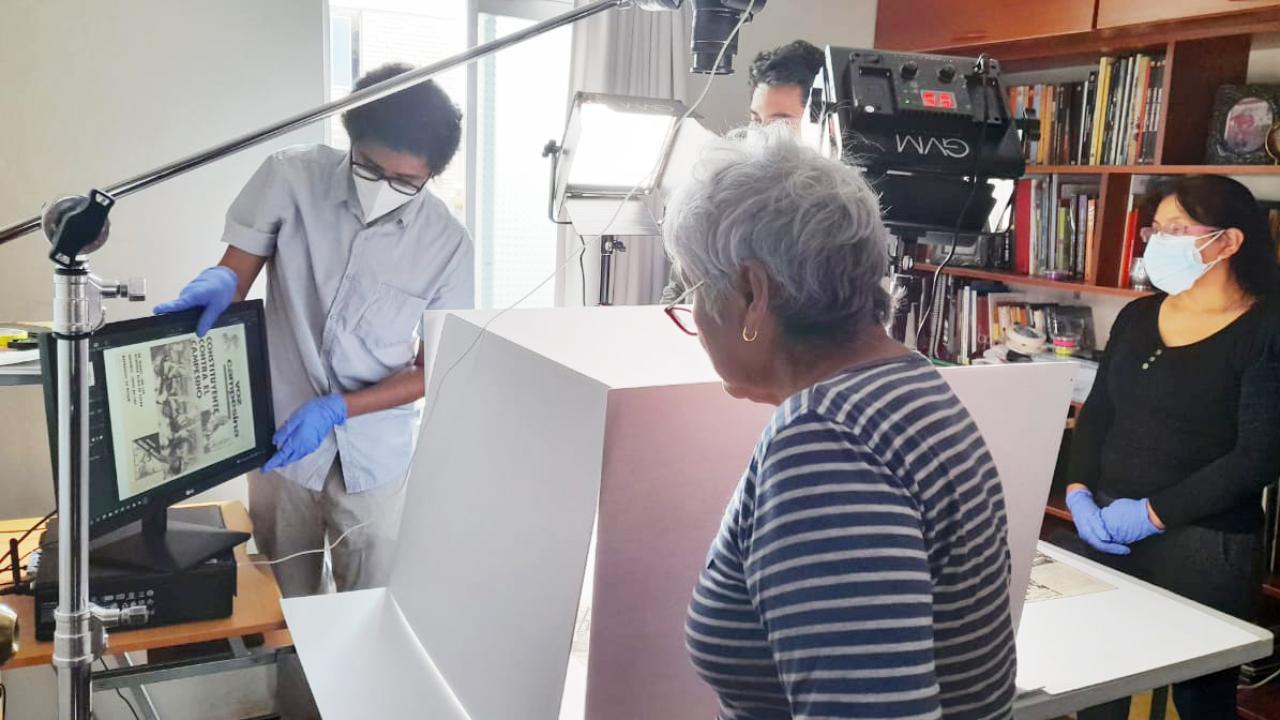
Preserving Human Rights Archives in Peru: UC Davis Leads New Digitization Project to Safeguard an Endangered History
It was a single note that reached Angélica Mendoza de Ascarza after her son Arquímedes was taken from her home by soldiers in Peru’s military. In faint cursive on a scrap of deeply creased brown paper, he wrote that he was being held at an army barracks and asked her to find a lawyer and money and any way possible to get him to a trial.
The day after Arquímedes’ disappearance in 1983, officers at the “Los Cabitos” barracks insisted to his mother, better known as “Mamá Angélica,” that he wasn’t in their custody. However, his hand-written note would play a critical role in Mamá Angélica’s years-long effort to find justice. It would culminate in the 2017 conviction of former soldiers responsible for 53 forced disappearances that included Arquímedes'.
Between 1980 and 2000, roughly 70,000 people disappeared or were killed in Peru, according to the country’s 2003 Commission on Truth and Reconciliation report. Documents, both formal and informal, were central for both piecing together a history of this violence and successful judicial proceedings seeking justice. Today, many of those documents are in danger.
Charles Walker, a professor of history in the UC Davis College of Letters and Science, was recently awarded a $100,000 grant to digitize archives from three major human rights organizations in Peru. With this funding from the UCLA Library’s Modern Endangered Archives Program, Walker will partner with co-investigator Ruth Borja Santa Cruz, a professor of history at the University of San Marcos in Peru, to preserve documents that chart a history of human rights in the country.
“These archives are really endangered,” said Walker. “If the political situation changes, these organizations might be closed and maybe even burned down.”
Read the full article in the UC Davis College of Letters and Science Magazine